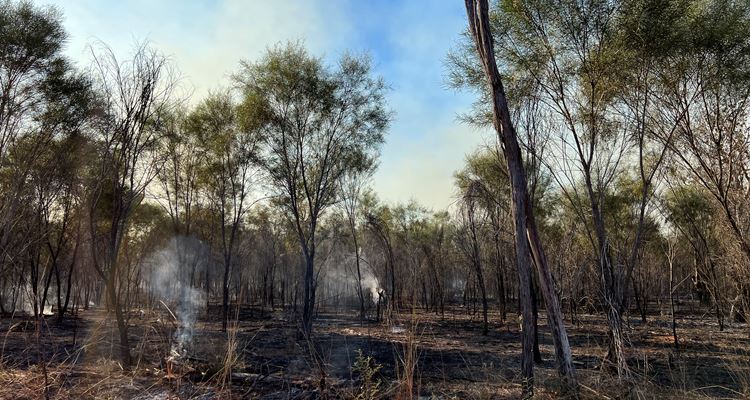Strengthening communities through enhanced Bushfire Risk Management

In May 2024, the Department of Fire and Emergency Services’ (DFES) Office of Bushfire Risk Management (OBRM) hosted a workshop on the impact of bushfires on systems and networks that support community function.
Representatives from 12 local governments and staff from four DFES regions participated in the workshop that followed the release of the updated Guidelines for Preparing a Bushfire Risk Management Plan 2023, which now includes systemic risk. The guidelines help local governments prepare for potential disruptions to the systems and networks that support the community, boosting community resilience and reducing the impacts of a bushfire.
What is systemic risk?
Systemic risk refers to the potential of a bushfire to cause widespread disruptions across interconnected systems and networks that support community function. These impacts extend beyond the immediate fire-affected area, influencing social, economic and environmental aspects of the community.
For example, if a bushfire destroys a local school, children will need to be relocated to another town for their education. If rebuilding takes years, families may move permanently to where their children are attending school. This population decrease can lead to several major issues:
- Population decline: families may not return even after the school is rebuilt, causing a permanent drop in the community’s population.
- Economic impact: small businesses and other employers lose workers and customers which may force them to close. If farmland is also affected, it could disrupt local, regional and statewide supply chains.
- Community disruption: local clubs and organisations might shut down due to the reduced population, leading to a decline in community values, wellbeing, social connections and resilience.
Addressing systemic risk involves understanding how a bushfire can trigger widespread disruptions, affecting people's quality of life and the overall functioning of the community.
The approach
The workshop's primary objective was to test collaborative approaches for assessing systemic risk. By bringing together individuals familiar with local communities, the workshop fostered discussions and brainstorming sessions to explore effective risk management strategies.

This collaborative environment helped participants improve their risk management skills and highlighted the importance of community empowerment and resilience in addressing systemic risks. For example, through education and working groups focused on bushfires, participants learned about treatments to reduce systemic risk, developed effective bushfire plans and enhanced the adaptive capacity of the community.
Feedback from the workshop emphasised the human-centric nature of systemic risks and the value of community-focused resilience strategies.
The strong turnout and enthusiasm from local governments and DFES staff was a testament to the significance of this topic. OBRM plans to continue refining this approach and integrating it into future educational workshops.
For more information, please contact OBRM at obrm@dfes.wa.gov.au.

